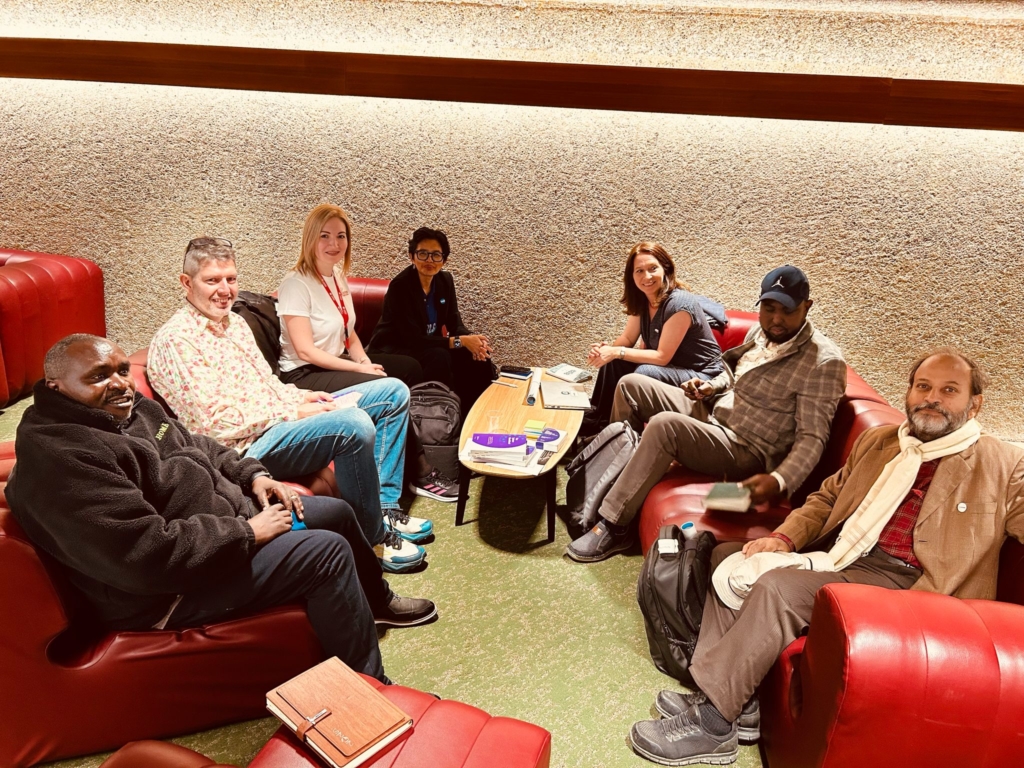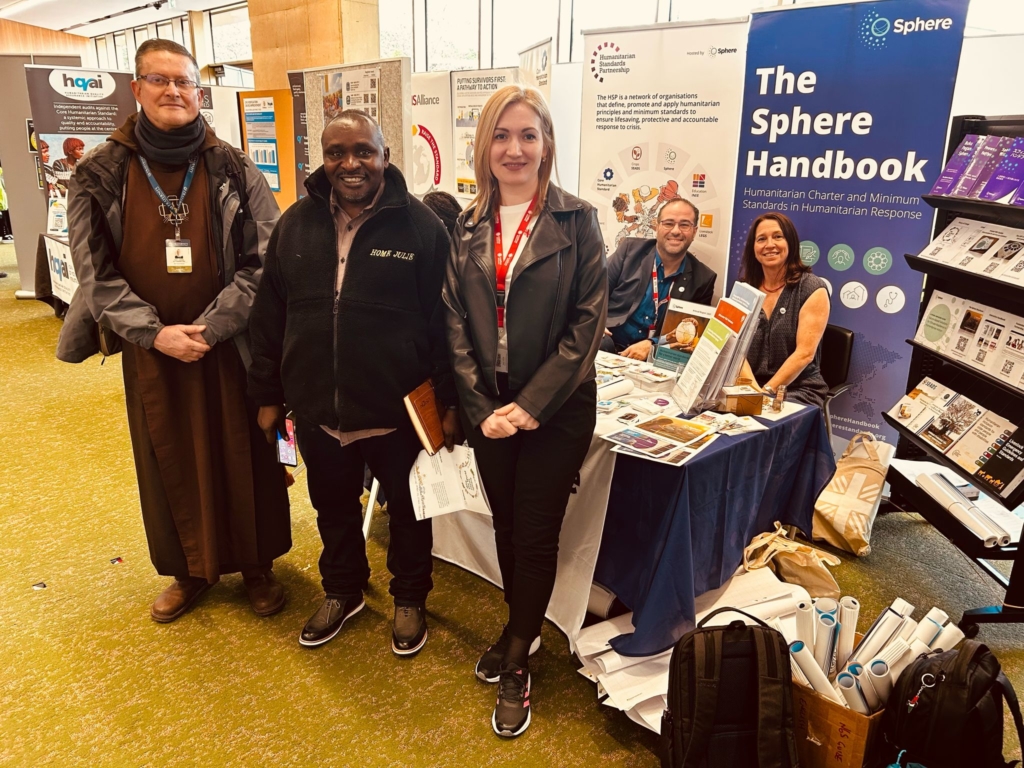From North-Kivu DR Congo to Geneva: Sharing local perspectives at HNPW 2025
By Jonas Habimana, Sphere focal point representative and CEO of BIFERD in the Democratic Republic of the Congo
Jonas Habimana attended the Humanitarian Networks and Partnerships Weeks (HNPW) 2025 in Geneva – his first time participating in this global event organised by UNOCHA. Supported by Sphere, Islamic Relief Worldwide and Geneva Welcome Centre, Jonas joined thousands of humanitarian actors from across the world to share insights, connect with peers, and take part in key conversations shaping the future of humanitarian response.

From the left – Jonas Habimana, Axel Schmidt, Diana Antir, Vanda Lengkong, Felicity Fallon, Mohamed Adan Ibrahim and Nayeem Gawher.
For Jonas, it was an important opportunity to represent not only his organisation but the realities and experiences of local responders.
“It was a pleasure for me to attend HNPW. It was an opportunity to connect with other experts and donors, including Grand Challenge Canada, Swiss Cooperation, and BHA. I also connected with CARITAS International and diaspora organisations, and had the chance to visit the Geneva humanitarian hub. I presented my work to funding partners, foundations, and researchers, and shared how humanitarian principles guide our daily response,” he shared.
Throughout the week, Jonas actively contributed to several sessions. He joined a panel discussion organised by Sphere, titled ‘Humanitarian same, reset or dispatch: What does fit for purpose look like?’ The interactive session talked about the evolving humanitarian landscape and the role of humanitarian principles in strengthening response efforts.
He also co-hosted a session on climate change, displacement and migration alongside Islamic Relief Worldwide, DEMAC, and ODI’s Humanitarian Policy Group. The session provided space to discuss the challenges and opportunities of working in environments impacted by both environmental and humanitarian crises.

Jonas also spent time at the Sphere booth, engaging with visitors and sharing how Sphere standards are applied in the DRC context. These conversations allowed him to connect with practitioners and introduce tools that help local organisations implement quality and accountable humanitarian programming.
Outside of formal sessions, Jonas met with humanitarian actors, including the Swiss Agency for Development and Cooperation (SDC), NEAR Network, C4C, the Start Network, IASC, IOM, and Good Neighbours International. He also exchanged ideas with fellow Sphere focal points and trainers, discussing common challenges around localisation, funding, and coordination.
“We discussed what localisation can look like in practice and how local actors can contribute meaningfully to shaping humanitarian policy and approaches,” Jonas noted.
Jonas has established strong connections and held follow-up meetings with the MAP Action team, DEMAC (a diaspora organisation), Grand Challenge Canada, and the Start Network to explore future collaboration and partnerships. Additionally, from Geneva, BIFERD signed an agreement with Sourir d’Enfants, an NGO based in Geneva and led by members of the Congolese diaspora. His participation at HNPW 2025 is a reminder that local actors bring essential perspectives to global conversations – and when given space, contributing not only context-specific knowledge but also practical experience on how humanitarian standards are implemented in complex environments.
